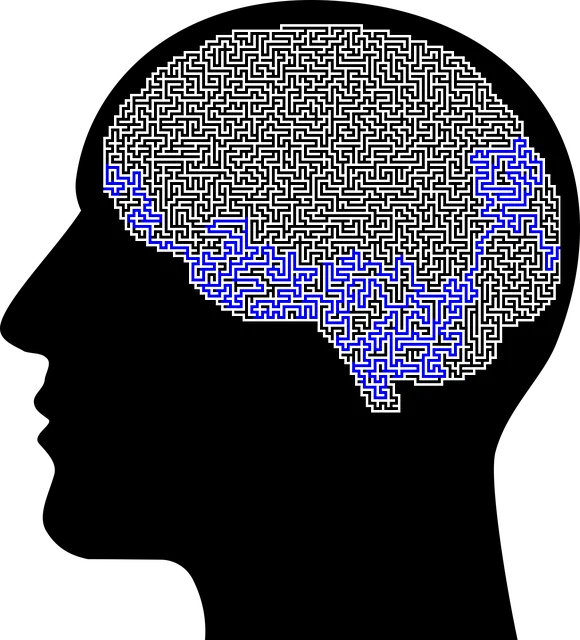Wheat Ridge Kaiser Permanente offers a comprehensive mental health coverage program prioritizing awareness, quality, and inclusivity. They utilize diverse services, patient self-reporting, clinical interviews, and electronic health records (EHRs) to collect data, enabling holistic understanding of mental well-being. Advanced data analysis identifies trends and patterns in mental health issues, informing tailored Wheat Ridge Kaiser Permanente mental health coverage programs like mindfulness sessions and efficient resource allocation. This proactive approach enhances patient care, improves outcomes, and advances mental healthcare practices.
Mental health data analysis is a powerful tool for understanding and improving patient care, especially within comprehensive healthcare systems like Wheat Ridge Kaiser Permanente. This article delves into the intricacies of analyzing and interpreting mental health data using methods employed by organizations like Wheat Ridge Kaiser Permanente. We explore data collection techniques, effective interpretation strategies, and practical applications that drive enhanced mental health services through real-world insights. By understanding Wheat Ridge Kaiser Permanente’s mental health coverage, we can optimize support for patients’ holistic well-being.
- Understanding Wheat Ridge Kaiser Permanente Mental Health Coverage: A Comprehensive Overview
- Data Collection Methods in Mental Health Analysis
- Techniques for Interpreting Mental Health Data Effectively
- Implementing Insights from Mental Health Data Analysis for Improved Care
Understanding Wheat Ridge Kaiser Permanente Mental Health Coverage: A Comprehensive Overview

Wheat Ridge Kaiser Permanente offers a comprehensive mental health coverage program designed to support individuals in navigating their emotional well-being. This healthcare provider recognizes the significance of Mental Health Awareness, providing a range of services tailored to diverse needs. From therapy sessions to counseling, their goal is to offer effective solutions for all members. The program focuses on empowering patients with tools to enhance their mental resilience and overall quality of life.
With a dedicated team of professionals, Wheat Ridge Kaiser Permanente ensures high-quality care through specialized services. Their approach prioritizes patient comfort and confidentiality while promoting healing environments. Additionally, the organization invests in Healthcare Provider Cultural Competency Training to ensure staff members are equipped to address various cultural and ethnic backgrounds, fostering an inclusive environment. This commitment to excellence highlights their dedication to improving mental health outcomes for all their members.
Data Collection Methods in Mental Health Analysis

In mental health analysis, data collection methods play a pivotal role in understanding and addressing individuals’ emotional well-being. At Wheat Ridge Kaiser Permanente, various techniques are employed to gather comprehensive insights into patients’ mental health states. One common approach involves patient self-reporting through structured questionnaires and surveys, which capture personal experiences and symptoms. These tools, such as standardized assessment scales, enable healthcare professionals to assess emotional regulation, a key aspect of overall mental health.
Another essential method is clinical interviews, where trained practitioners engage in open conversations with patients to explore their thoughts, feelings, and behaviors. This qualitative data provides valuable context and depth, especially when coupled with quantitative measures. Additionally, Wheat Ridge Kaiser Permanente leverages electronic health records (EHRs) to streamline data collection, allowing for efficient tracking of patient progress over time. Integration of these diverse collection methods facilitates a holistic understanding of mental health, informing the implementation of effective Emotional Well-being Promotion Techniques and Compassion Cultivation Practices within their coverage scope.
Techniques for Interpreting Mental Health Data Effectively

Interpreting mental health data requires a nuanced approach to ensure accurate insights and effective support. At Wheat Ridge Kaiser Permanente, healthcare professionals leverage advanced techniques to analyze trends within patient populations. This involves segmenting data based on demographics, diagnostic categories, and treatment modalities to identify patterns indicative of specific mental health challenges. For instance, analyzing trends in trauma support services usage can reveal acute or chronic trauma-related issues within the insured population.
Moreover, these data analysis methods enable a deeper understanding of emotional healing processes and mood management strategies. By examining the effectiveness of various interventions, such as therapy types and medication regimens, healthcare providers can tailor treatments to individual needs. This tailored approach, informed by rigorous data interpretation, not only improves patient outcomes but also optimizes resource allocation for mental health coverage like that offered by Wheat Ridge Kaiser Permanente.
Implementing Insights from Mental Health Data Analysis for Improved Care

Implementing Insights from Mental Health Data Analysis for Improved Care at Wheat Ridge Kaiser Permanente mental health coverage can significantly enhance patient outcomes and overall well-being. By analyzing large datasets, healthcare providers gain valuable insights into trends, risk factors, and patterns related to mental health issues within their population. This enables them to design more targeted and effective Mental Health Education Programs that cater to specific needs. For instance, data might reveal elevated stress levels among certain demographics, prompting the implementation of Emotional Well-being Promotion Techniques like mindfulness meditation sessions tailored for these groups.
Such insights can also guide resource allocation, ensuring that evidence-based interventions are readily accessible. Additionally, continuous monitoring through data analysis allows for early detection of emerging mental health concerns, facilitating timely interventions and potentially preventing more severe issues. This proactive approach not only improves patient care but also contributes to the overall advancement of mental healthcare practices within the organization.
The analysis and interpretation of mental health data, as exemplified by Wheat Ridge Kaiser Permanente’s comprehensive coverage, offer invaluable insights. By employing robust data collection methods and applying effective interpretation techniques, healthcare providers can significantly enhance patient care. Integrating these insights enables more personalized treatments, improves overall mental wellness outcomes, and ultimately fosters a healthier community. Understanding and leveraging mental health data is a crucial step towards revolutionizing healthcare, ensuring that support and resources are accessible to all who need them.






